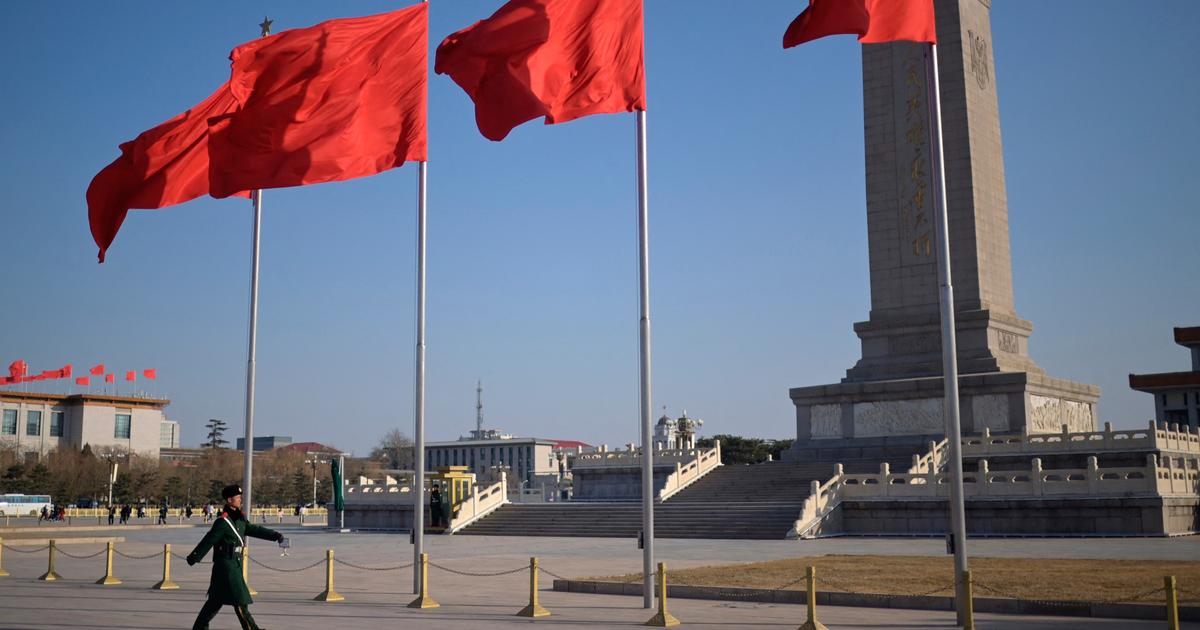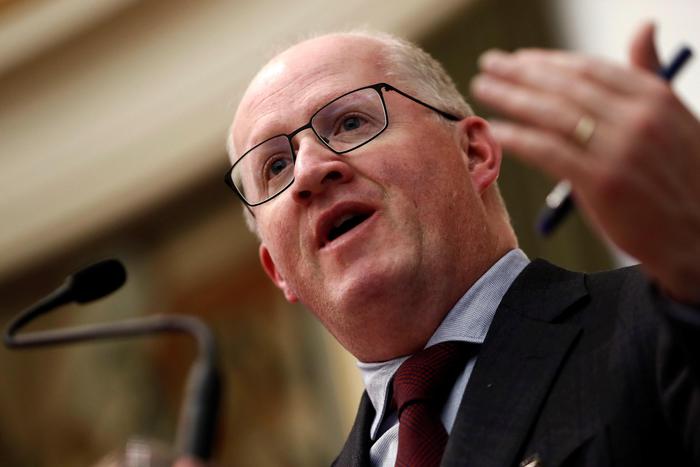China has clearly missed its self-imposed economic target for 2022.
How the economy develops this year depends above all on the further course of the corona pandemic.
Munich/Beijing - The Chinese economy has grown more slowly in the past twelve months than it has in decades - apart from the first pandemic year 2020. As China's National Statistics Office announced in Beijing on Tuesday, economic growth in 2022 was three percent and thus only slightly above the 2.3 percent reported in 2020.
That was the lowest level since 1976.
According to an estimate by the World Bank, the global economy grew by 2.9 percent last year - China's growth was therefore only slightly above the global average.
Chinese customs had already reported on Friday that the country's exports fell by 9.9 percent in December compared to the same month last year.
Imports fell by 7.5 percent.
Analysts blame the government's corona policy in Beijing and declining international demand for this third monthly decline in a row.
On the other hand, things are going well for China's auto industry: According to their own statements, Chinese manufacturers exported 54.4 percent more vehicles last year than in the previous year.
If these figures are confirmed, China would be the world's second largest car exporter after Japan and, for the first time, ahead of Germany.
China's head of state and party leader: This is how Xi Jinping rose to become the most powerful man in the world
China's head of state and party leader: This is how Xi Jinping rose to become the most powerful man in the world
China is clearly missing its economic target
China's government originally set a growth target of 5.5 percent for 2022 last March.
What seemed realistic at the time, given a figure of 8.4 percent in 2021, has turned out to be increasingly illusory over the past year.
The Chinese economy not only had to contend with the global effects of the Ukraine war, but also with the strict corona lockdowns, which paralyzed several cities with over a million inhabitants, especially in the spring.
For example, the economic metropolis of Shanghai was largely cordoned off for two months, so that container ships backed up in front of the city's port - and as a result, supply chains worldwide came to a standstill.
It was only in early December that China backed away from its strict zero-Covid policy, which had been trying for nearly three years to
According to analysts, how the corona situation in China develops should be decisive for the current year.
"The most important thing is that China stays on course and doesn't shy away from reopening," said Kristalina Georgieva, head of the International Monetary Fund (IMF).
"If they stay the course, China will be a positive contributor to average global growth by around mid-year."
China is facing the second corona wave
It is estimated that several million people in China are infected with the corona virus every day.
According to calculations by the London-based data processor Airfinity, the number of infections should have peaked on January 13th.
According to Airfinity, a second peak is expected on March 3, a few weeks after the Chinese New Year on January 22.
After that, according to the analysts, the daily number of infections will decrease significantly;
a large part of the population will probably have been infected at least once.
According to the local authorities, more than half of the residents in several Chinese cities and provinces have already had an infection.
"In December, masses of employees were ill," says a German manager from Shanghai.
So far, the many millions of cases of illness in China do not seem to have an impact on global supply chains.
One indicator of this is the World Container Index, which indicates how much it costs to ship a standard container from Shanghai to Rotterdam.
According to the consulting firm Drewry, the price is currently around 2,000 US dollars and is therefore at about the same level as before the start of the corona pandemic.
During the lockdown in Shanghai last spring, customers had to pay three to four times the price to have their goods shipped.
Germany wants to make itself more independent from China
For the current year, the World Bank expects growth of 4.3 percent in China.
However, some analysts do not anticipate a significant recovery in the Chinese economy until the beginning of the second or third quarter at the earliest.
"A full return to normalcy in China will take at least six months," says Dhiraj Bajaj of investment bank Lombard Odier.
Economic activity is likely to bottom in early 2023, Bajaj said.
The end of China's zero-Covid policy also means that the Chinese are likely to use their regained freedom to travel more this year - and to consume.
Analysts expect that the European luxury goods industry in particular will benefit from this.
China's government decided on several measures in December to strengthen the economy this year.
In this way, domestic consumption is to be strengthened and additional foreign investments are to be attracted.
"China's economy is shaking off the shadow of Covid-19, backed by tremendous potential and supportive policies," China's state-run Xinhua news agency recently wrote.
The government is "confident of achieving an overall recovery and improvement in its economic performance in 2023," Xinhua quoted Deputy Director of the National Development and Reform Commission Zhao Chenxin as saying.
Foreign observers are concerned, however, that China under head of state and party leader Xi Jinping is again increasingly relying on state intervention in the economy.
Another big unknown is the still smoldering Chinese real estate crisis, which could lead to upheavals in the global economy.
In addition, there is an uncertain international situation: alarmed by the Russian attack on Ukraine and against the background of increasing Chinese threats towards Taiwan, several Western countries are currently trying to become more independent of China.
Germany too must reduce its dependencies on the People's Republic, said FDP defense expert Marie-Agnes Strack-Zimmermann in an interview with
IPPEN.MEDIA's Münchner Merkur
.
"Doing business without noticing what is happening geostrategically in the world is no longer possible," says Strack-Zimmermann.
"You have to be careful not to feed those who end up trying to eat us."













